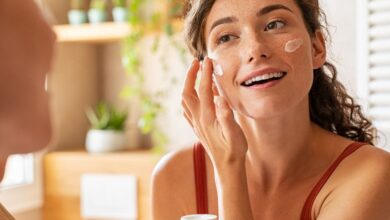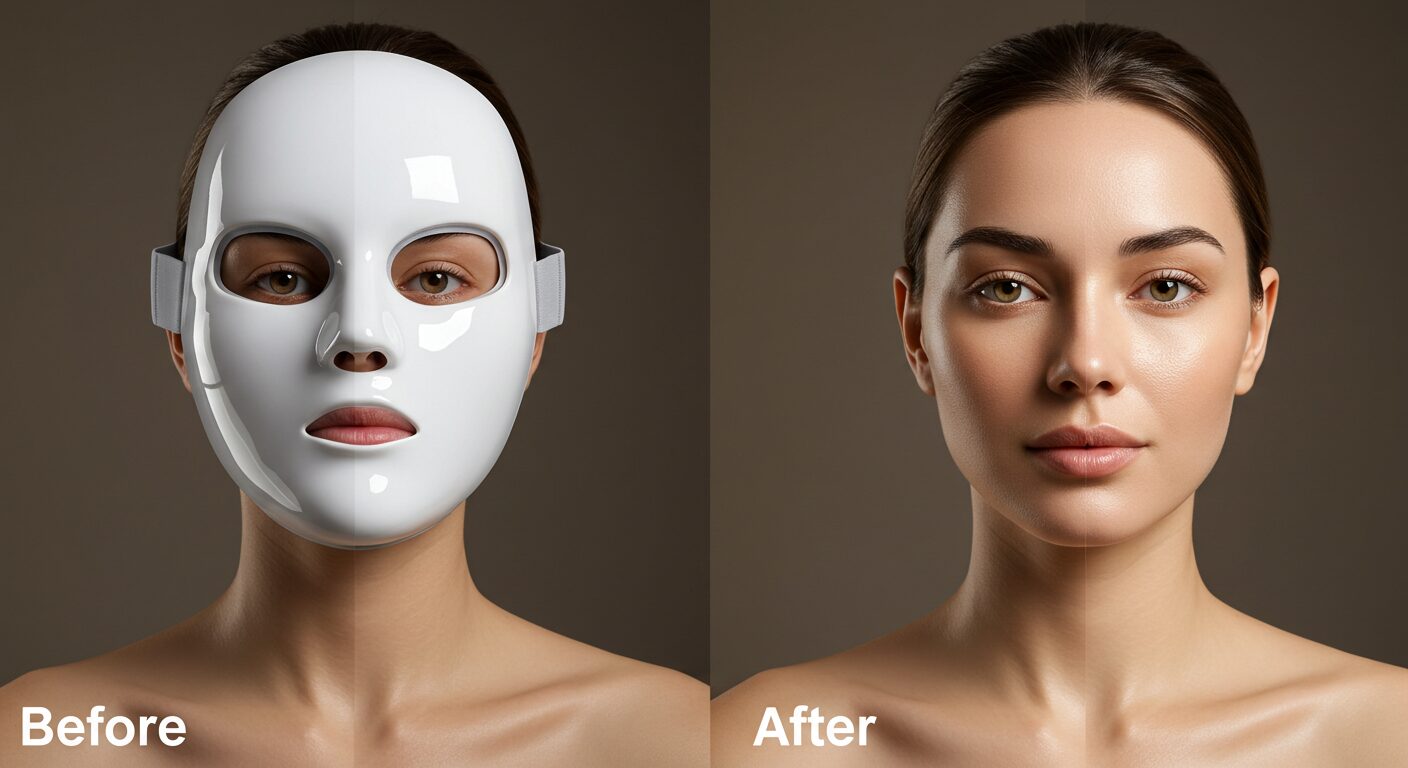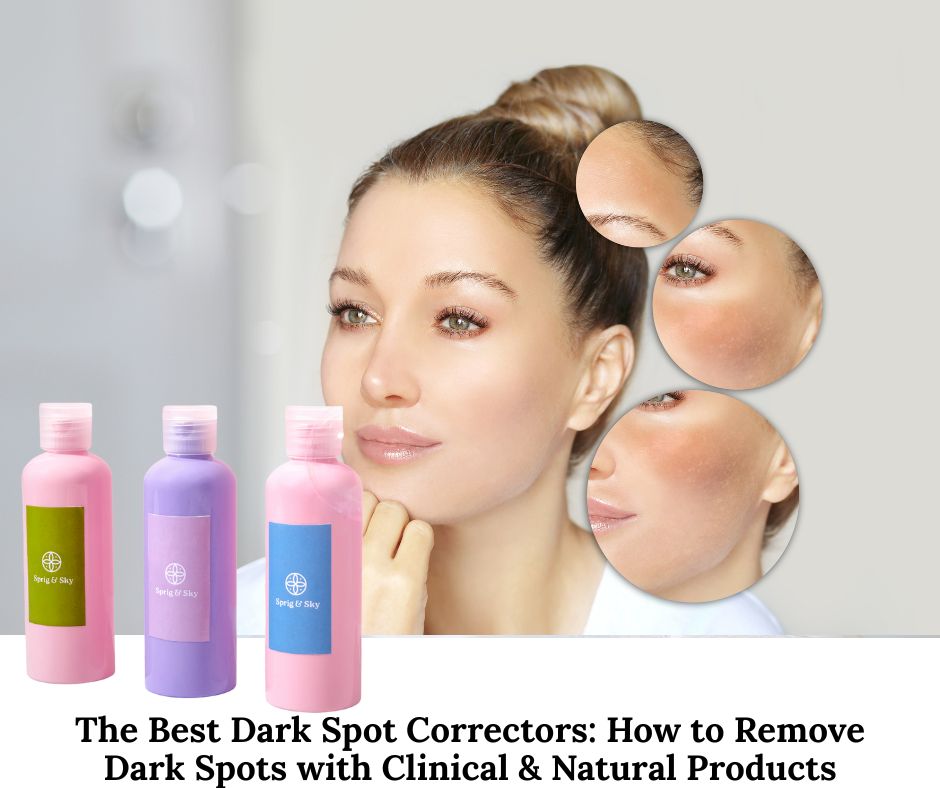
Preventing dark spots is often easier than treating them. While creams and treatments are effective, consistent daily habits and proper skincare routines play a major role in keeping your skin even-toned and radiant. Dermatologists emphasize that prevention is the key to reducing post-inflammatory hyperpigmentation, sunspots, and melasma.
In this guide, we’ll cover the most effective daily habits and skincare tips to prevent dark spots and maintain healthy, glowing skin.
1. Use Sunscreen Every Day
Sun exposure is the primary cause of dark spots. Even brief daily exposure can trigger melanin overproduction.
-
Recommendation: Use a broad-spectrum SPF 30 or higher every morning.
-
Dermatologist Tip: Reapply every 2 hours when outdoors and after swimming or sweating.
-
Pro Tip: Choose sunscreen with antioxidants to further protect against UV-induced pigmentation.
2. Maintain a Gentle Skincare Routine
Harsh cleansers and scrubs can irritate the skin and worsen pigmentation.
-
Cleansers: Opt for mild, pH-balanced cleansers.
-
Exfoliation: Use chemical exfoliants (AHAs/BHAs) 2–3 times per week to promote cell turnover.
-
Moisturizers: Keep skin hydrated to strengthen the skin barrier and reduce inflammation.
3. Avoid Picking or Squeezing Pimples
Picking acne increases inflammation, which can lead to post-inflammatory hyperpigmentation (PIH).
-
Dermatologist Insight: Even minor trauma can trigger melanin overproduction.
-
Tip: Use spot treatments and consult a dermatologist for active acne.
4. Healthy Diet and Hydration
Your diet influences skin health and pigmentation.
-
Antioxidant-rich foods: Berries, citrus, leafy greens, and green tea help combat free radicals.
-
Hydration: Drinking enough water supports skin repair and regeneration.
-
Avoid Excess Sugar and Dairy: Can trigger acne and worsen dark spots in some individuals.
5. Incorporate Antioxidant Serums
Topical antioxidants neutralize free radicals and reduce melanin overproduction.
-
Vitamin C: Brightens skin and prevents sun-induced pigmentation.
-
Niacinamide: Reduces inflammation and minimizes dark spots.
-
Usage Tip: Apply in the morning under sunscreen for best results.
6. Nighttime Skincare Routine
Nighttime is crucial for skin repair.
-
Retinoids: Encourage cell turnover and fade dark spots gradually.
-
Moisturizer: Lock in hydration to prevent dryness and irritation.
-
Consistency: Regular nightly routine enhances overall skin tone.
7. Treat Melasma or Hormonal Pigmentation Early
Hormonal pigmentation, such as melasma, requires proactive management.
-
Dermatologist Tip: Use sunscreen rigorously, avoid triggers like hormonal contraceptives if possible, and consider topical treatments early.
-
Preventive Measures: Wear wide-brimmed hats and protective clothing outdoors.
8. Regular Skin Checkups
Visiting a dermatologist ensures early detection and personalized prevention strategies.
-
Tip: Schedule a checkup every 6–12 months if you are prone to pigmentation.
-
Benefit: Tailored advice for skincare products, treatments, and lifestyle adjustments.
9. Use Gentle Makeup Products
Certain cosmetics can clog pores or irritate skin, leading to dark spots.
-
Choose non-comedogenic and fragrance-free products.
-
Remove makeup thoroughly every night to prevent buildup and pigmentation.
10. Consistency is Key
Preventing dark spots is about daily dedication, not occasional treatments. Establish a routine and stick with it:
-
Morning: Cleanser → Antioxidant serum → Moisturizer → Sunscreen
-
Night: Cleanser → Treatment (Retinoid or cream) → Moisturizer
Consistency ensures long-term protection against pigmentation.
FAQs on Preventing Dark Spots
Q1: Can sunscreen alone prevent dark spots?
Sunscreen is critical but must be combined with other daily habits like gentle skincare and hydration.
Q2: How often should I exfoliate to prevent pigmentation?
2–3 times per week with mild chemical exfoliants is sufficient. Over-exfoliation can worsen dark spots.
Q3: Are natural remedies effective for prevention?
Yes, antioxidants from natural sources like green tea or vitamin C serums can help, especially when used consistently.
Q4: Can lifestyle changes really make a difference?
Absolutely. Hydration, diet, avoiding sun exposure, and consistent skincare all significantly reduce the risk of dark spots.
Conclusion
Preventing dark spots requires a proactive approach. Daily habits like using sunscreen, gentle skincare, proper hydration, healthy diet, and consistent nighttime routines are essential. By following these dermatologist-approved tips, you can maintain even-toned, radiant skin and minimize future pigmentation.
Want to learn treatments for existing dark spots? Check out our guide: [Best Creams for Dark Spots and How to Remove Acne Marks Fast].




